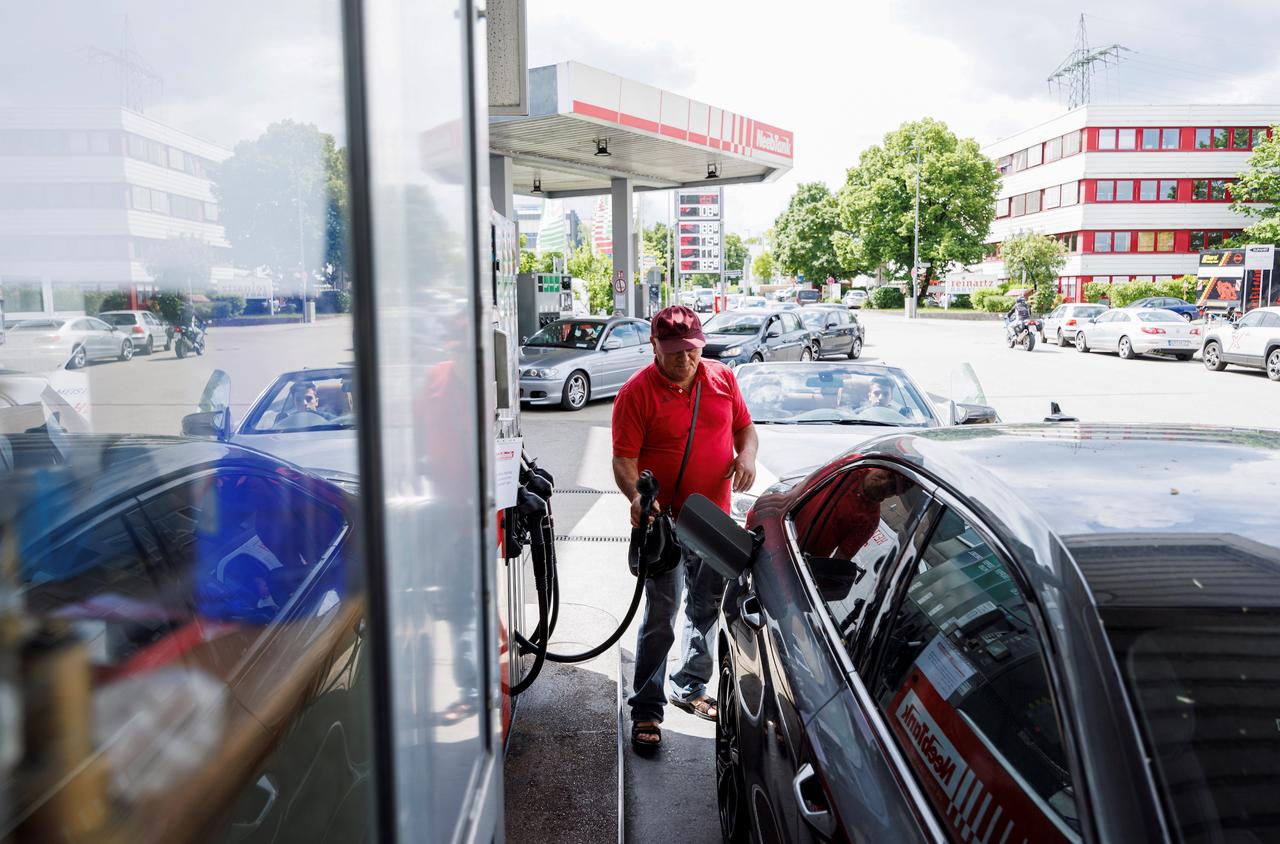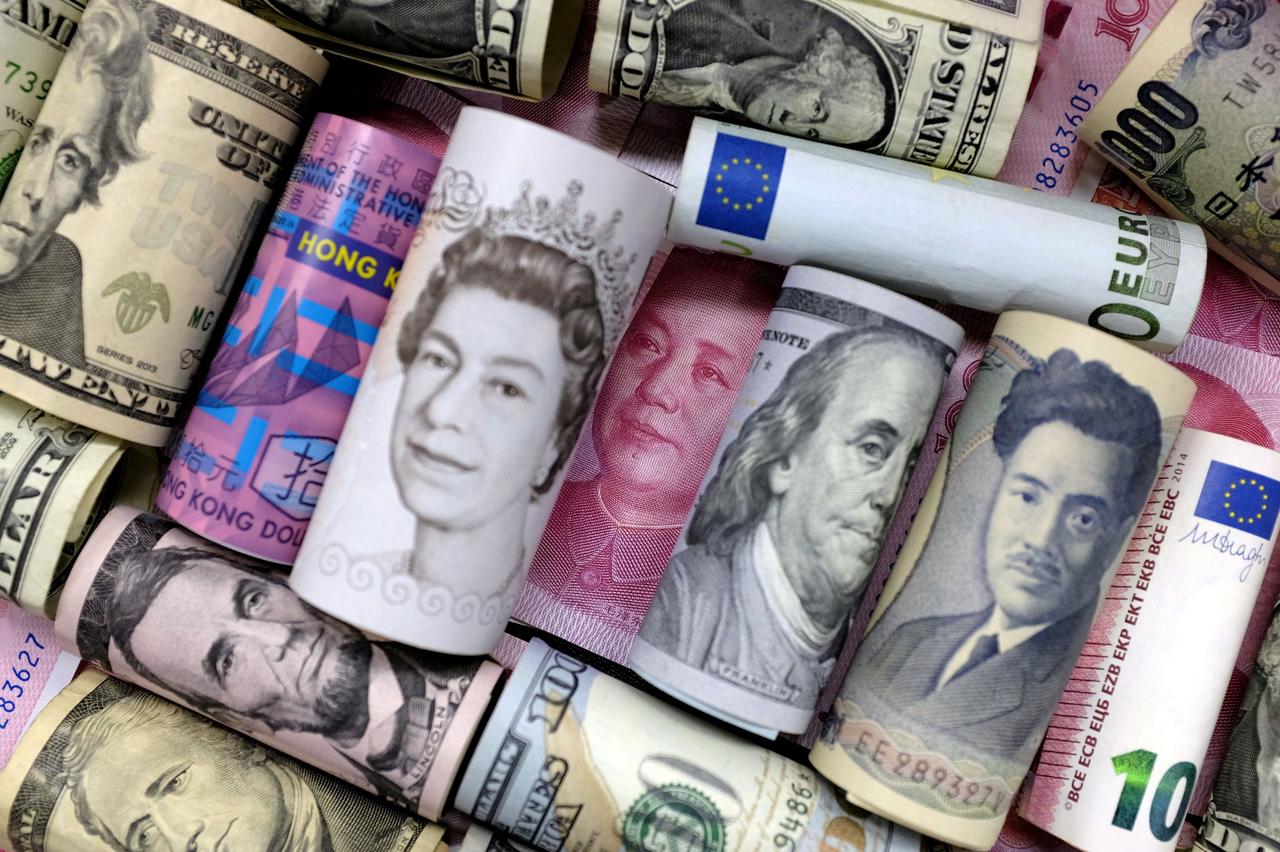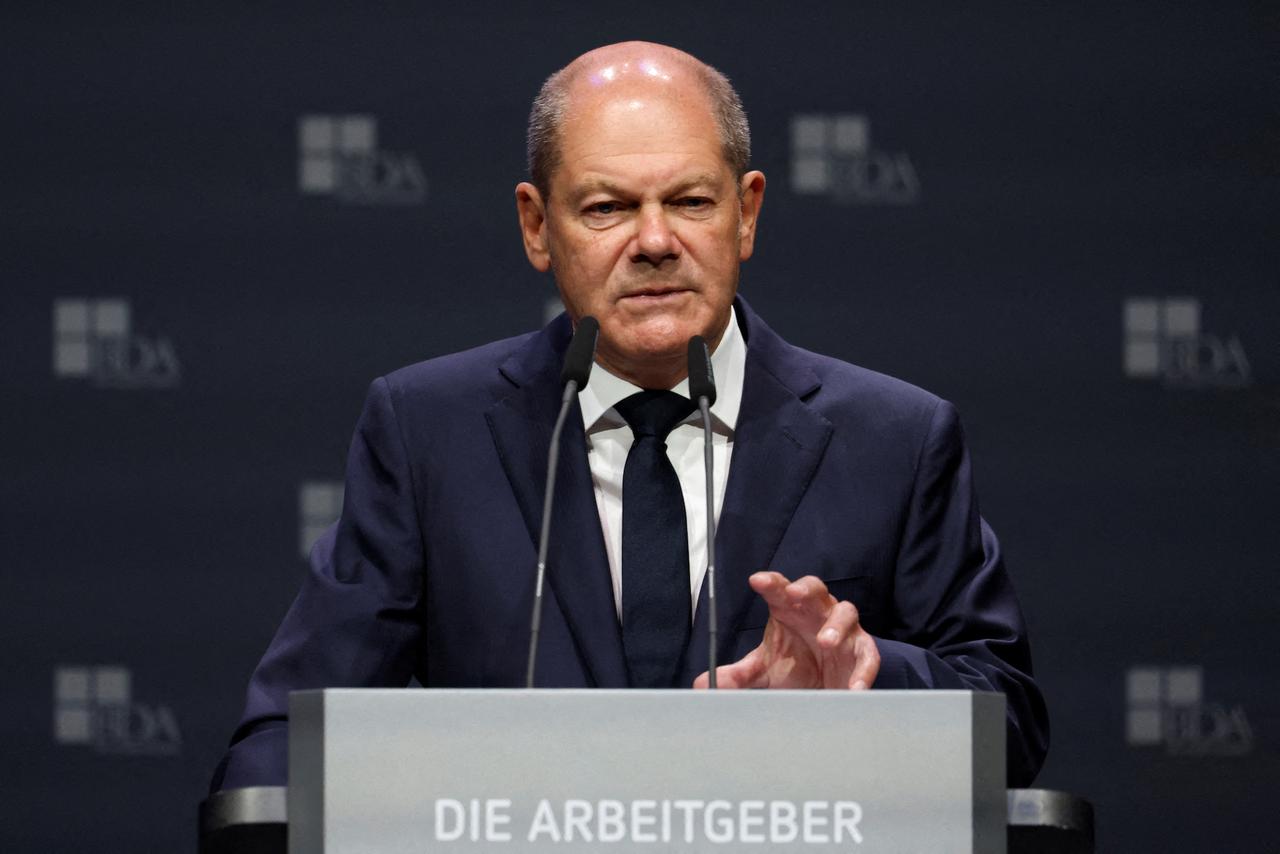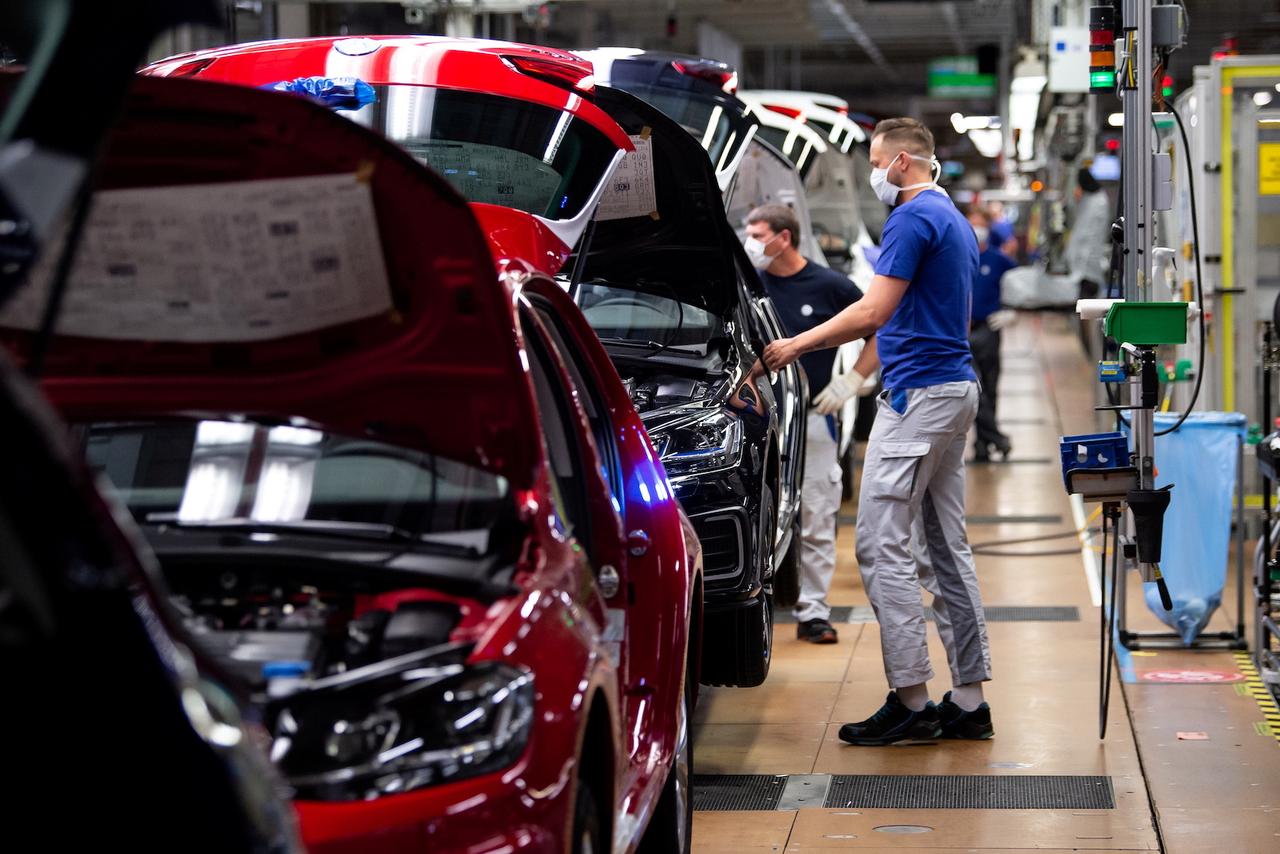Since Russia invaded Ukraine in February, Europe has been facing an energy crisis with no end in sight. On the contrary, the situation is only getting worse as Russia throttles its supply of natural gas to Europe. In such a situation, Europe is about to enter the winter season.
European countries have been trying to conserve and stockpile natural gas in preparation for winter. However, if it is a severe winter, the stored natural gas will soon be depleted.
The reason for the harshness that hits Germany
Pipeline Nord Stream 1 in the industrial area of Lubumin, Germany. Taken on August 30th.
Germany is a particularly tough country.
Germany, which has so far received Russian natural gas by pipeline, has no liquefied natural gas (LNG) terminals. If the stockpile runs out, the energy situation will become even more severe.
Naturally, planned power outages are also considered. In some cases, people’s lives may be considerably inconvenient, such as limited time to use heating or hot water.
Depending on the time of day, it may become a reality in Germany to take cold showers even in the middle of winter and dry them in cold weather, a situation that would have been unthinkable in developed countries.
Businesses can similarly be restricted in their power and fuel usage. Factories may have to shorten operating hours and shops may have to shorten their operating hours. At least for heating, its use should be considerably restricted.
In other words, the German economy, which is approaching winter, is likely to be severely constrained in terms of both “consumption” and “production.”
In the early days of the novel coronavirus epidemic, the lockdowns that were widely implemented in Europe also restrained economic activities in each country in terms of both consumption and production. In the event of a severe cold snap in the winter and an even more severe energy situation, it is likely that lockdown-like restrictions will be imposed on the German economy.
Advertisements
“Windfall tax” is a bad move in the energy crisis due to soaring fuel prices?
An employee refuels at a gas station near Munich, Germany. Taken June 1st.
The European Union (EU) is currently in talks with other countries to cap natural gas prices. The EU has also agreed to impose a “wind fall tax” on power producers due to rising electricity prices due to soaring energy prices. The existence of renewable energy businesses that have unexpectedly brought in a huge amount of profit is in my mind.
Specifically, it sets an upper limit of 180 euros (about 26,000 yen) for power generation revenue per megawatt hour (MWh).
Governments around the world will use the income from this “windfall tax” to support households and businesses suffering from high energy prices. This is good news for households and businesses struggling with high energy prices, but on the other hand, these support measures will not solve the energy shortage itself. Rather, in order to increase the supply of energy, we are in a situation where tax cuts and investment subsidies for energy companies should be strengthened.
Will “investment money” escape from Europe to the United States?
Investors won’t invest in renewable energy projects if they can’t get high returns from them. Nevertheless, if the government imposes an upper limit on the profits of renewable energy projects, the profitability of renewable energy projects will decline, and investors will flee.
On the other hand, in the United States, under the Inflation Reduction Act enacted in August, tax credits were decided to encourage investment in renewable energy. From an investor’s perspective, it makes more sense to invest in tax-deductible renewable energy projects in the United States than in European countries, where the “windfall tax” has limited profits to a certain level.
In fact, the flight of investment money to the US is alarming the European wind farms association, WindEurope.
In fact, the EU’s strategy, which set the target value of the renewable energy ratio in the energy mix based on final energy consumption as of 2030 at “at least 40%” and issued a major directive to renewable energy investment, and this “windfall tax” ’ is not consistent.
Confused Energy Policy, Postponement of “Denuclearization”
German Chancellor Scholz speaks at an event of the Federation of German Business Associations (BDA) on Sept. 13. Hydrogen will be the gas of the future, he said.
As long as a stable supply of energy is the basis of economic activity, Europe should be faced with the problem of energy shortages. However, in the case of Europe, especially the EU, there is a strong desire to take the lead in the global megatrend of decarbonization and renewable energy. As a result, there is a strong impression that energy policy has fallen into self-restriction, and that it is going back and forth according to the circumstances of the moment.
Returning to Germany, at the end of September, the Scholz administration announced a policy to continue operating the two nuclear power plants, which had been scheduled to shut down by the end of the year, until April 2023. At first, the Scholz administration intended to maintain two nuclear power plants as emergency power sources and complete the phase-out of nuclear power by the end of the year.
Until then, the public opinion in Germany had been to “deploy nuclear power”, but due to the serious energy shortage, the public opinion in Germany shifted to extending the operation. It can be seen that the lack of energy is afflicting the lives of Germans.
If the Scholz administration decides to move away from nuclear power and accelerate energy shortages, the German economy will suffer even more.
Europe’s economy will be tough this winter
Europe will soon enter the winter season, and will enter a period of full-scale demand for energy. As a result, the negative impact on the economy due to energy shortages will become more serious in the future. However, a back-and-forth energy policy will not solve the energy shortages, nor will it alleviate the conditions that severely constrain the economy. The economy should be tough this winter.
Demand for heating will slow down next spring, easing the strain on energy supply and demand.
Germany is also building LNG terminals, so it should be able to cover the gas shortage to some extent. However, it is difficult to imagine that the energy shortage itself will be completely resolved. Even after 2023, the energy situation in Europe will continue to be severe, especially in Germany.
Concern about the impact on the German automobile industry
Workers at the Volkswagen plant in Wolfsburg, Germany, April 2020.
If that happens, energy prices will remain high at best, and economic constraints will remain strong. And if the energy shortage continues for too long, there is a danger that German industry will further hollow out.already representing GermanyAutomaker Volkswagen is planning to expand its business to countries such as Spain, which have LNG terminals and stable gas supplies.Considering relocation of production baseIt seems
In the case of Europe, while looking ahead to the spread of renewable energy in the future, it is more realistic to slow down the speed of “decarbonization” and make full use of existing energy sources to solve energy shortages. would be Nonetheless, in Europe, there are deep-rooted cautious voices regarding the use of nuclear power and coal-fired power, which are supposed to be powerful means of doing so.
Therefore, the energy crisis in Europe will likely be prolonged.
*Contributions are my personal views and are not affiliated with any organizations.
(Written by Yosuke Tsuchida)
Source: BusinessInsider
David Ortiz is an opinionated and well-versed author, known for his thought-provoking and persuasive writing on various matters. He currently works as a writer at 24 news breaker, where he shares his insight and perspective on today’s most pressing issues. David’s unique voice and writing style make his articles a must-read for those seeking a different point of view.




